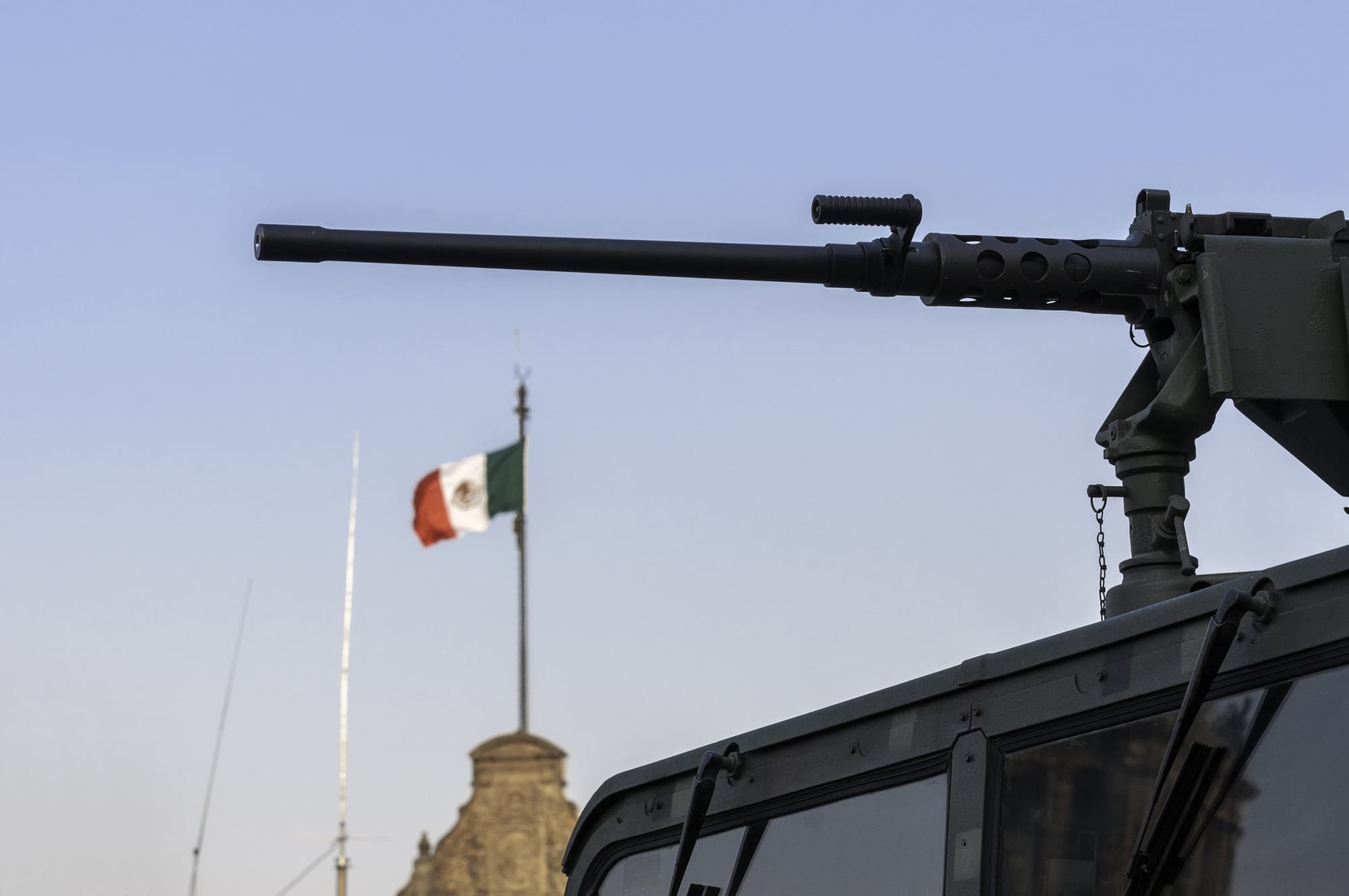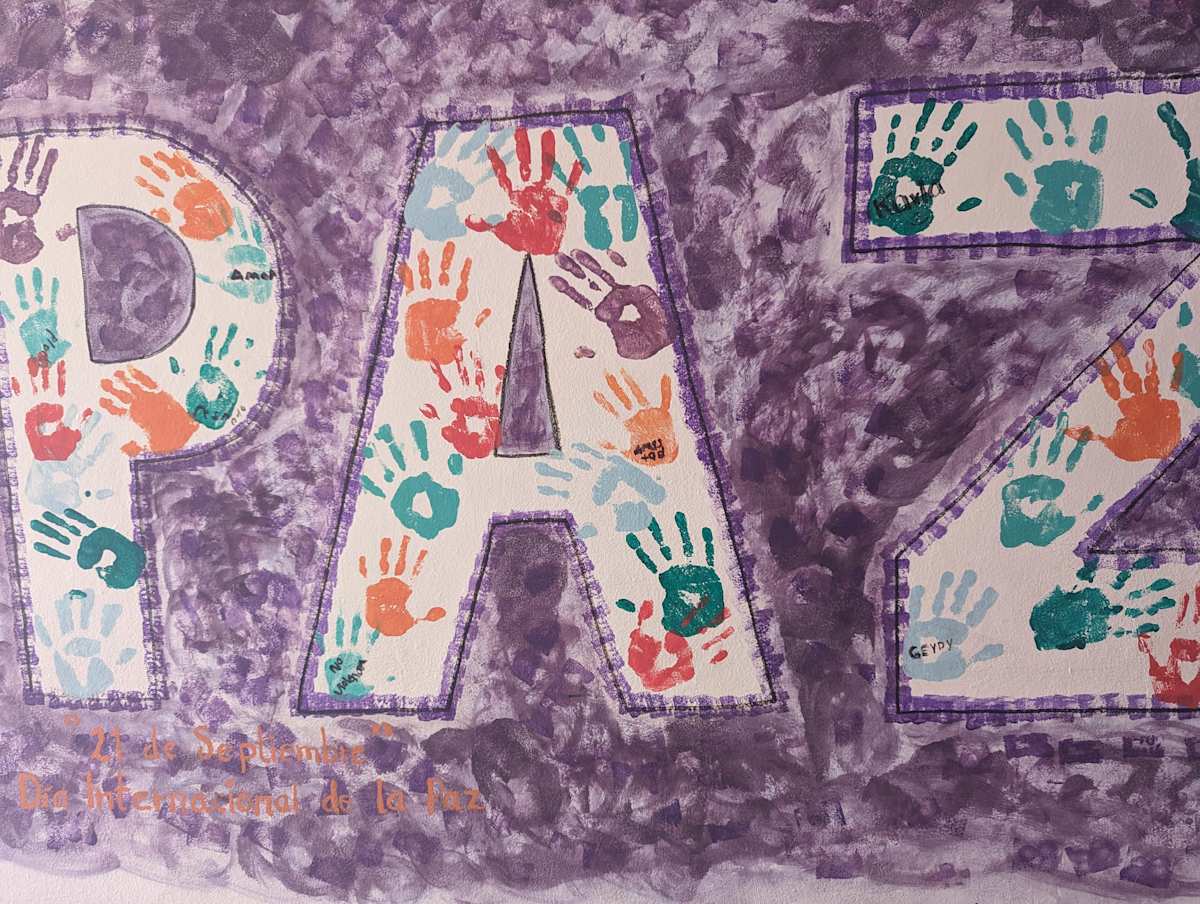
Decades of research and advocacy on gender, peace and security have shown that gender shapes armed conflict, and vice-versa.
However, few studies show how militarisation in the absence of armed conflict affects women and their experiences of insecurity. We’re interested in how the presence of military forces to enforce public order in municipalities in the context of Mexico’s “war on drugs” affects intimate partner violence (IPV) against women.
In 2006, Felipe Calderón Hinojosa declared a war on drugs after narrowly winning the Mexican presidency. The following year, his administration deployed approximately 5000 soldiers to curb drug trafficking organisations in his home state of Michoacán.
Since then, the strategy, termed “constabularisation”, has evolved by deploying the Mexican army and marines across the country to conduct public safety tasks, such as patrolling, managing checkpoints and conducting detentions.
Calderón’s successors have continued this strategy, with former president Andres Manuel López Obrador ramping up the military’s budget, as well as its economic and political power.
Evidence has found that this militarised strategy has failed. Instead of decreasing drug trafficking, violence has soared. According to the Council on Foreign Relations, since 2006, homicides have exceeded 400,000, and 90,000 people have disappeared during the same period.
Read more: Securing women’s lives: Taking men’s lethal violence against women seriously
Research by Intersecta and Data Cívica, two Mexican feminist civil society organisations, shows militarisation could be linked to a rise in homicides of women. Thus, we wanted to know, does the presence of the military in communities, especially the presence of militarised masculinities and the normalisation of the use of force, increase the likelihood of women experiencing violence from their partners?
To address this question, we assessed the impact of recurring and short-term military deployments on IPV against women, using data on IPV from Mexico’s National Survey on Household Dynamics and military deployments from Flores-Macias and Zarkin’s (2024) dataset.
Drawing on semi-structured interviews conducted in Mexico between March and May 2024, as well as statistical findings, we found increased levels of IPV against women in municipalities with recurring military deployments, especially those involving marines, the most hyper-masculine and prestigious of the armed forces.
Marines are also more likely to engage in sexual violence against women. Indeed, 41% of women detained by the marines experience rape.
Following scholars of gender and international relations, we argue that the Mexican marines exemplify the hyper-militarised form of masculinity.

The relationship between militarisation and IPV
We conducted a mixed-method analysis combining available statistical data to investigate the possible impact of militarisation on IPV. Our preliminary findings show militarisation has a mixed effect on IPV that is contingent on multiple factors – in particular, the recurrence of military deployments, the type of armed forces deployed, and the presence of feminist civil society organisations on the ground.
First, we found that in the immediate months after a military deployment, the prevalence of IPV decreased, but that recurring military deployment had the opposite effect, increasing the prevalence of IPV over time.
When the marines were present in a municpality alongside the army during recurring military deployments, we found an even larger increase in IPV.
However, we also measured the presence of civil society organisations with feminist goals to reduce violence against women in communities, and found that in situations of recurring militarisation, their activism decreased the rates of IPV.
Read more: Unifying media approaches to address the violence against women crisis
Insights from the interviews in Mexico helped us to interpret the findings of our model. Militarisation likely reduces IPV in the short term in part due to a deterrence logic that leads potential offenders to refrain from committing IPV when armed forces are present in the community.
However, this deterrence effect is countered over the long term by the enduring presence of militarised masculinities. Among our research participants, we found support for the argument that recurring militarisation makes civilian men feel threatened by the increased presence of the military, leading them to engage in IPV to assert power over women and their local hegemony vis-a-vis outsider armed forces in a competitive hierarchy among masculinities.
Our finding that increased prevalence of IPV at higher rates due to the presence of marines in recurring military deployments demonstrates that the more masculinised the armed forces, the more IPV increases when they’re present in a civilian community.
But the presence of feminist civil society organisations also plays an important role in reversing the harmful effects of militarisation. These organisations and their activism have the effect of reducing IPV even during long-lasting recurring military deployments.
Read more: International Women’s Day: What we don't know about women as ‘weapons of war’
Indeed, this finding aligns with previous feminist political science research that has shown autonomous feminist civil society organisations to be the major factor explaining policy reforms to address violence against women.
As is the case in many countries around the world, including Australia, feminist civil society is instrumental in creating awareness, shifting norms and leveraging responsiveness to address violence against women in Mexico.
Our research shows that feminist activism reduces IPV even in contexts where anti-violence laws and policies are weakly enforced.
An under-recognised threat
The preliminary research findings suggest militarisation has a potentially detrimental effect on women by increasing the prevalence of IPV against women. Militarised masculinities, moreover, pose an under-recognised threat to women by normalising violence against women.
Simultaneously, feminist civil society that advocates and organises to defend and protect women’s rights have potentially life-saving effects.
Although this research is not yet final and is pending robustness checks, it has implications for efforts to reduce violence against women in other countries with a heavy military presence despite the absence of an armed conflict, such as the Philippines, El Salvador, and Bangladesh.
This doctoral research project is co-supervised and co-autored by Dr Umair Khalil.





